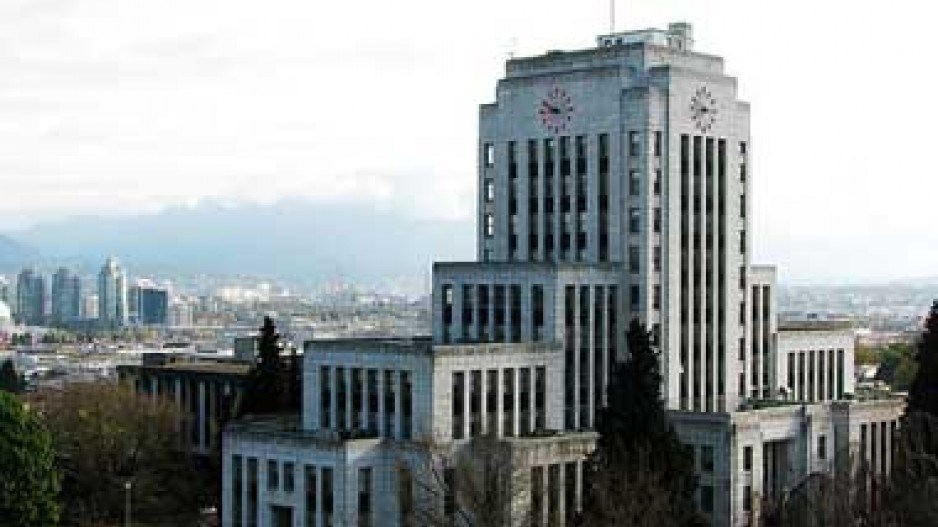With municipal elections just around the corner, it’s too bad that one of the biggest issues in the city of Vancouver has yet to be mentioned: the inexcusable delays facing anyone dealing with the building permit department.
As a result of an ill-advised shift to an appointment system for permit applications, combined with a move to new quarters and some new online services, if you called the city today to get a building permit, the earliest you could get an appointment just to begin the process would be May 2015. Expect another three months after that to get a final permit.
Since the department was overhauled this year “to achieve operational efficiencies,” permit times have shot up to 40 weeks from six. It now takes longer to get a permit than it does to build a house.
Until last year, building permits for one- and two-family houses took up to six weeks. In slow times, you could even get one in a single day. Now, applicants have become so desperate to get their projects moving that they’re making extra appointments just in case they might need them. An estimated 30% of the appointments clogging up the system are these “ghost” appointments.
One of my neighbours, a retired architect who wants to renovate a character Kitsilano home for his extended family, wrote an apologetic letter to all his neighbours in September apologizing for leaving his home abandoned. “We purchased our home in mid-March,” he wrote, “and we naively thought there was a possibility that we could be living there by Christmas.” Now he tells me he’ll be lucky if he gets a building permit by Christmas.
The city claims that delays are due to “the volume of appointment requests,” but those volumes are a direct result of these process changes.
“In the old system you would get your building permit drawings ready, go to the building department at city hall, take a number and wait for your number to be called,” said an architect, who, like the other sources quoted in this column, spoke on condition of anonymity out of fear of reprisal. “You then went up to the counter, handed the documents to a clerk who checked that you had filled them all out correctly. Fifteen minutes later you were out of there clutching a receipt. You were now ‘in the system’ – in less than a day, on a bad day.”
What’s been lost, according to a former senior city bureaucrat, is the chance for city staff and the client to talk in person to start navigating the byzantine, overlapping, sometimes conflicting processes in any application.
“The relationship between the staff and the applicants is vital,” he said. “An appointment system takes away that relationship. Forcing people to come in to meet an appointment time means they’re often not fully prepared. It’s highly inefficient. I estimate that a third of the applications fail under the appointment system because they’re not ready.”
The land financing costs alone from a six-month delay are around $20,000 per home on a $1 million lot. Multiply that by the 1,500 permits that go through the system every year and these delays are costing builders and homeowners $30 million on financing charges alone. That doesn’t include $1 billion-plus in direct spending on construction that’s deferred for half a year and all the spinoff jobs in the building trades.
The solution to this problem is not difficult: go back, in gradual steps, to what used to work. Even though the permit staff have been moved into a new single-point-of-contact office at 515 West 10th Avenue – at costs that went way over budget – it’s not designed for over-the-counter interaction. Even so, the city is promising to reinstate walk-in counter service in January.
Getting building permits right is at the core of running an efficient city. It’s probably the simplest and most effective thing any city can do to reduce the cost of housing and stimulate economic development. Unlike rapid transit, homelessness or investor-driven housing price inflation, it’s entirely within the control of the city. And right now it’s a mess. •
Peter Ladner ([email protected]) is a co-founder of Business in Vancouver. He is a former Vancouver city councillor and former fellow at the SFU Centre for Dialogue. He is the author of The Urban Food Revolution.




